Issue/Volume: 33/02

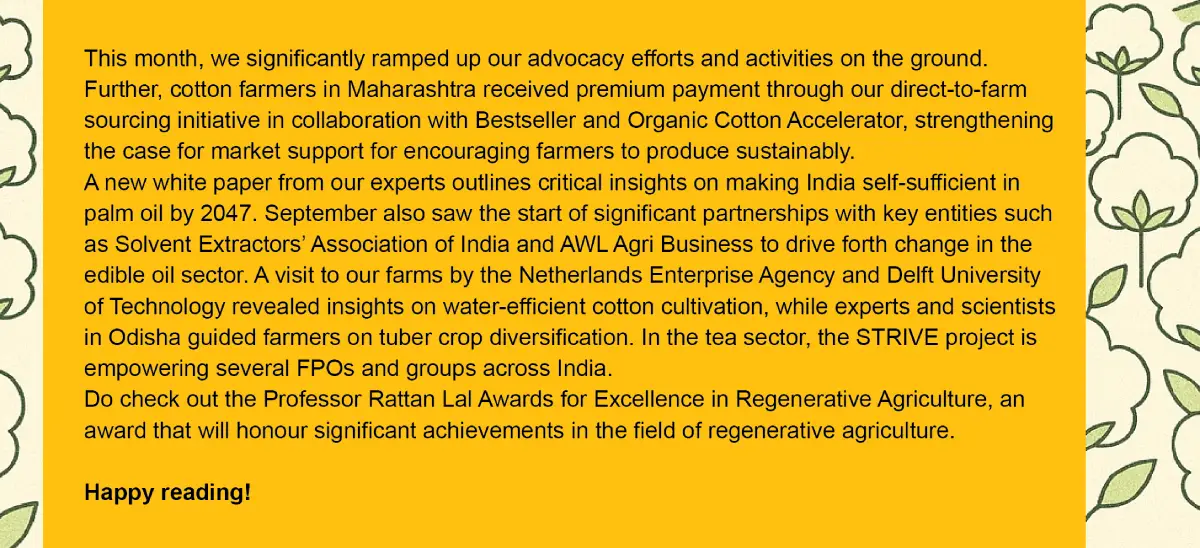

Cotton Farmers in Maharashtra Receive Premium Payments under Direct-to-Farm Sourcing Initiative
In Mangaladevi village in Maharashtra’s Yavatmal district, more than 100 cotton farmers recently received premium payments through Solidaridad’s direct-to-farm sourcing initiative, in collaboration with Bestseller and the Organic Cotton Accelerator (OCA).
The event, marked by the distribution of cheques in the presence of representatives from Bestseller, highlighted the positive impact of this partnership in securing better incomes for farmers. By committing to buy organic and in-conversion cotton at higher-than-market prices early in the season, farmers gain much-needed financial stability and encouragement to continue sustainable agricultural practices. This initiative not only ensures transparency and efficiency (often facilitated through digital systems) but also strengthens the case for more farmers to shift towards organic cotton.
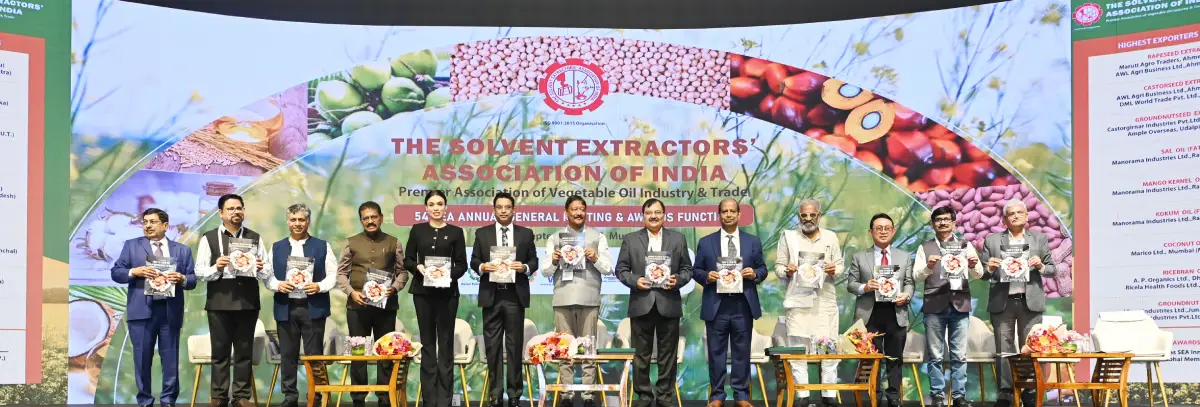
New White Paper Charts India’s Path to Palm Oil Self-Sufficiency by 2047
Solidaridad, in collaboration with the Solvent Extractors’ Association of India (SEA) and the Asian Palm Oil Alliance (APOA), has released a research-backed white paper titled “Path to Palm Oil Self-Sufficiency in India”. The paper outlines a comprehensive roadmap for India to reduce dependence on imports and achieve up to 50% self-sufficiency in palm oil by 2047.
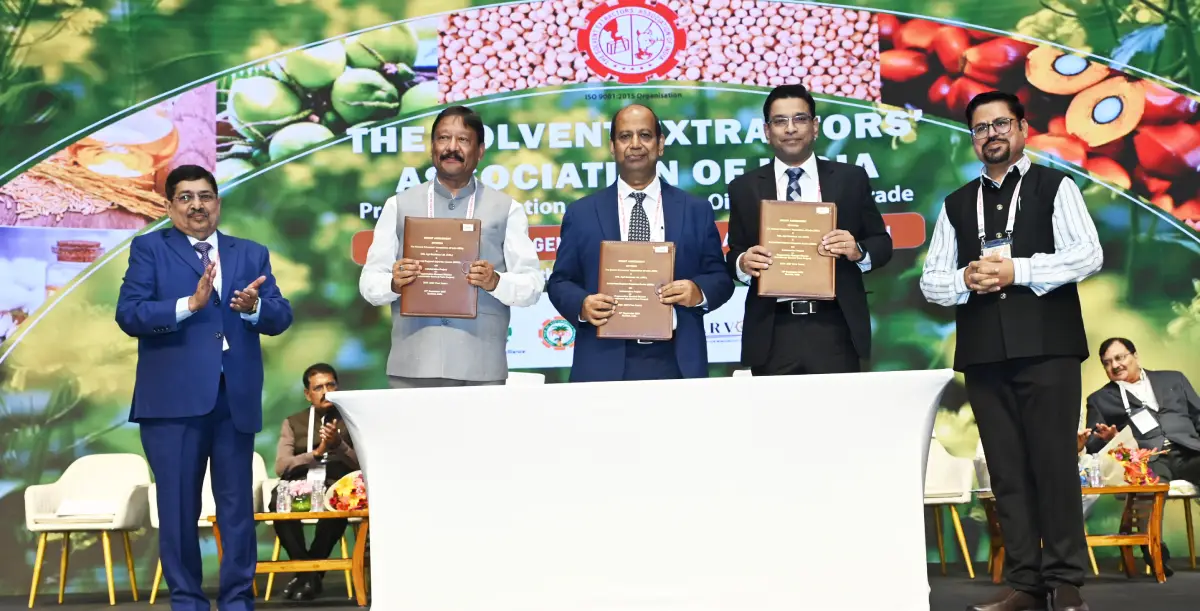
AWL, SEA, and Solidaridad Join Hands to Scale Up Regenerative Mustard Mission
AWL Agri Business Ltd (formerly Adani Wilmar Limited), one of India’s leading agri-businesses and FMCG companies, has partnered with Solidaridad and SEA to advance the Regenerative Mustard Mission – Sustainable Mustard Farm Project.
Under this collaboration, Solidaridad will serve as the implementing partner, directly engaging with farmers to promote regenerative practices on the ground. Central to the initiative is Solidaridad’s model farm approach, strengthened by digital agri-advisories and farmer capacity building. This combination empowers smallholder farmers to adopt climate-smart, resource-efficient, and profitable practices at scale.
The partnership will establish 3,000 mustard model farms across nine districts in Rajasthan, Madhya Pradesh, and Haryana—doubling the existing 1,500 farms. These farms will showcase regenerative agriculture practices, soil health management, satellite-based monitoring, and climate-resilient techniques aimed at bridging yield gaps in mustard cultivation.
The mission also seeks to train and support 20,000 farmers through demonstration plots, farmer field schools, and digital plaƞorms. By encouraging sustainable farming methods, the project aims to achieve a 30% increase in smallholder productivity and incomes, contributing directly to the National Mission on Edible Oils – Oilseeds (NMEO-OS) and the government’s vision of Aatmanirbhar Bharat.
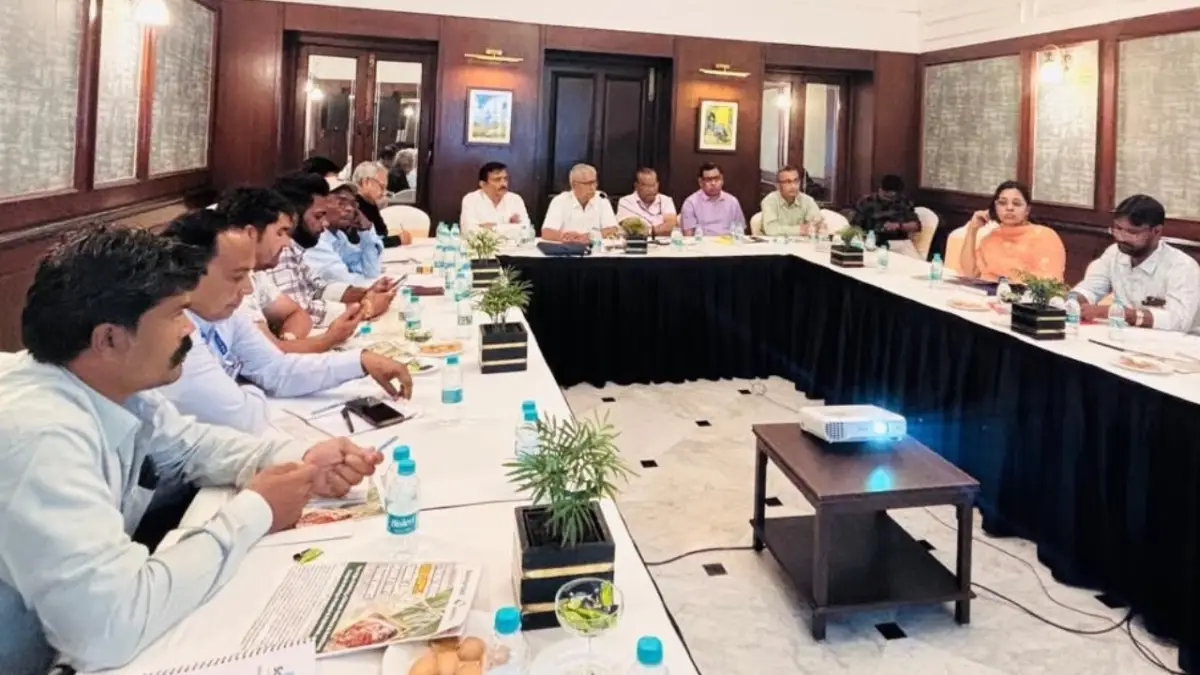
Stakeholder Workshop on Strengthening Seed Supply Chains Facilitates Dialogue for Developing a Robust Seed Ecosystem
Solidaridad recently conducted a stakeholder consultation workshop in Bhopal, Madhya Pradesh, as part of an ongoing study, “Strengthening Seed Supply Chains and Regulatory Frameworks for High-Yielding, Climate-Resilient, and Nutritious Crops in Madhya Pradesh and Rajasthan, India”, undertaken jointly with Seed NL.
The workshop was organised with an aim to discuss the study's findings, and co-develop actionable recommendations with key stakeholders (government departments, research institutes, seed companies, FPOs, farmers, and experts) by facilitating dialogue for developing a robust seed ecosystem that contributes to sustainable livelihood and food security.
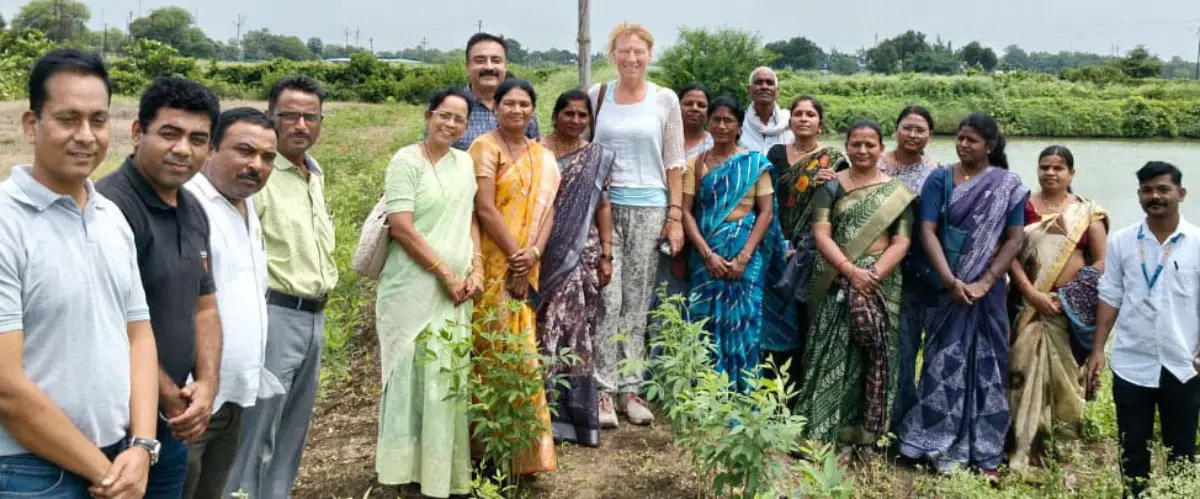
Netherlands Enterprise Agency Takes Stock of Water-Efficient Cotton Cultivation in Maharashtra
In early September, a delegation from the Netherlands Enterprise Agency (RVO), and Delft University of Technology (TU Delft), visited water-efficient cotton demonstration plots in Nagpur and Wardha districts, Maharashtra. During the visit, the delegation reviewed on-ground interventions promoting water-efficient and sustainable farming practices.
The delegation interacted with farmers, farmer producer organizations (FPOs), and self-help groups (SHGs) to understand the impact of adopting water-saving practices. Technologies such as drip irrigation, sprinklers, and mulching were showcased, highlighting how these methods help conserve water while improving crop productivity. Meetings were also held with village water-user groups, focusing on collective water management and community-led solutions.
The team took a close look at farm ponds, demonstration plots, and input application practices to observe how farmers are implementing sustainable techniques on the ground. Special emphasis was laid on how Smart Agri-advisory services, supported by automated weather stations, are providing timely guidance to farmers. Many shared their positive experiences of using the MAKARA mobile app, which helps plan farming operations effectively by delivering localized weather and crop advisories.
The delegation witnessed, first-hand, how integrated approaches—combining water efficiency, digital tools, and community participation—are contributing to climate-resilient cotton cultivation in Maharashtra. They appreciated the efforts and reaffirmed the importance of collaboration in strengthening farmer livelihoods while fostering sustainable resource management.
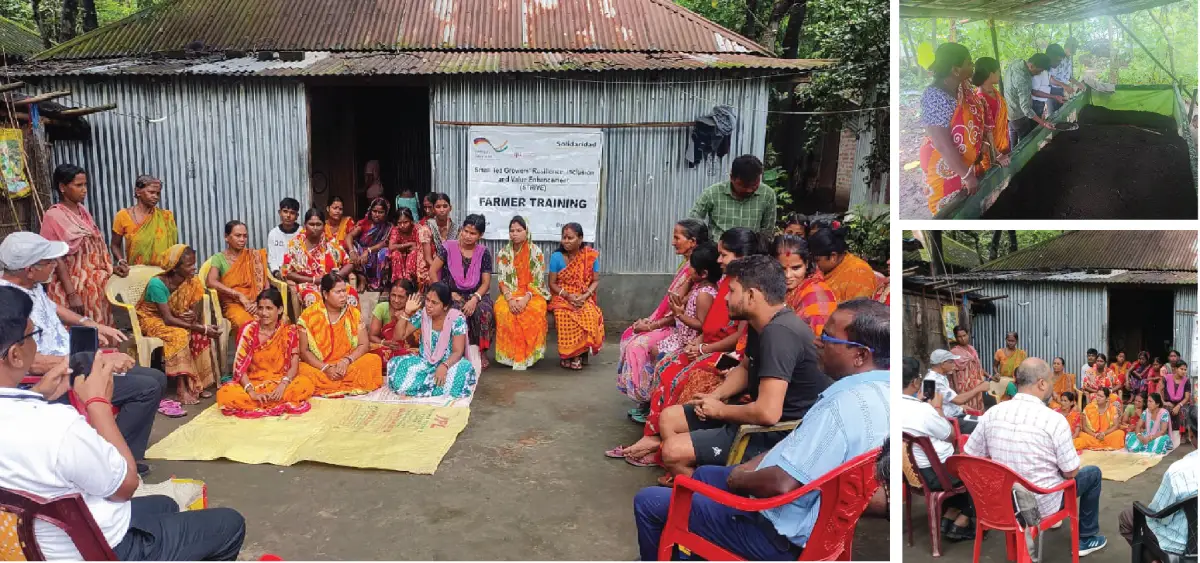
Balabari Progressive Women's Society Takes the Next Step towards Becoming an FPO
An all-women group—the Balabari Progressive Women's Society—is all set to become a full-fledged FPO. Comprising 51 farmers, the group in Uttar Dinajpur district, West Bengal, the group is supported by Solidaridad under its Small Tea Growers’ Resilience, Inclusion, and Value Enhancement (STRIVE) project. The members are engaged in preparing vermicompost, herbal pest repellants, and herbal nutrient supplements (to be used with tea)—all products which will enhance tea value in all its stages.
Instead of the usual 3–6 months, the group is producing vermicompost in 45 days, without compromising on quality. Already, 125 kgs from two vermi-beds have been sold within the group at INR15/kg. In the future, the compost will be certified by a body, which will help farmers earn as much as INR50/kg in the market. In addition to this, the group’s members are also preparing herbal concoctions, which they are selling in the village at the rate of INR10/litre.
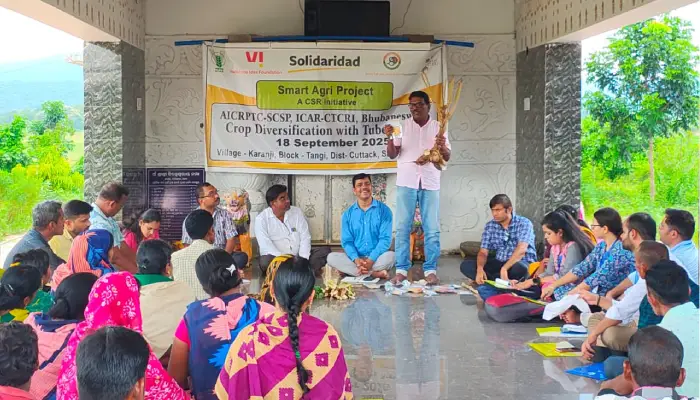
Scientists from Research Institutes Share Expertise with Farmers on Tuber Crop Diversification
A training programme on crop diversification with tuber crops was organized at Karanji village, Tangi Block of Cuttack district, Odisha, on 18 September 2025. Scientists from ICAR–Central Tuber Crops Institute (CTCRI) helped farmers get acquainted with different aspects of growing tuber crops with an emphasis on sweet potato, elephant foot yam and cassava cultivation. As the soil in the state is quite favorable for tuber crops, the farmers are encouraged to cultivate the same. During the programme, the 38 participants gained awareness of different value-added products which can be made from tuber crops.
A group of six scientists from the National Academy of Agricultural Research Management (NAARM), Hyderabad, is also currently visiting the village for a field-experience training programme. During the month-long visit, they will conduct Participatory Rural Appraisal, and then prepare a prospective plan, identifying challenges and outlining prospective solutions, for the next 5 years. Krishi Vigyan Kendra (KVK) Cuttack is facilitating this initiative.
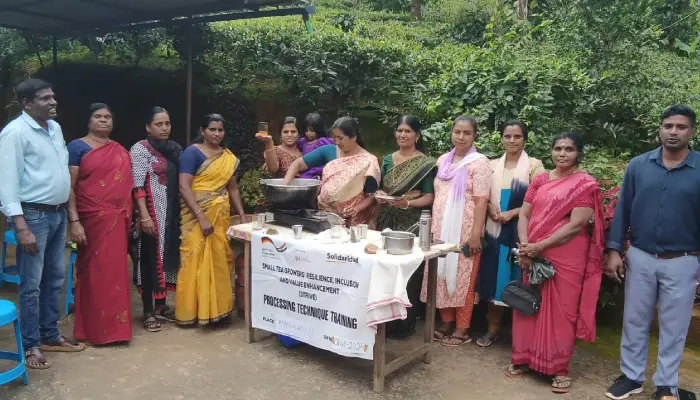
With New Tea Processing Unit, Women from Aswariya FPO Seek Empowerment Under STRIVE Project
A new mini tea-processing unit is planned to be set up to empower the women of the Aswariya FPO in the Nilgiris District of Tamil Nadu. The objective is to ensure sustainable income generation and employment opportunities for them, ultimately fostering business development and enabling them to establish small-scale enterprises.
In the initial phase of the STRIVE project, these dedicated farmers have successfully completed training in the production of both green and black tea. This unit will provide a vital avenue for them to leverage their new skills, generate income, and build a more secure future. The farmers are optimistic about the positive impact this project will have on their community.
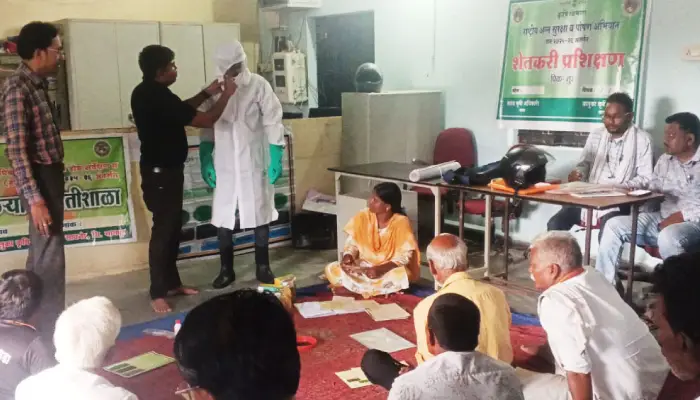
A Farmer Field School Initiative on Health and Safety in Agricultural Farms
Our team in Maharashtra recently conducted an awareness training in Badegaon village, Nagpur district, on safeguarding the health and well-being of farmers. The session emphasised the importance of personal protective equipment (PPE) kits in agricultural practices.
Farmers are often exposed to harmful chemicals, dust, and other occupational risks while spraying pesticides, applying fertilizers, or handling farm machinery. The use of PPE kits ensures safety, hygiene, and reduces health hazards.
Standard PPE kits for farmers consist of: gloves (to protect farmers from chemical exposure and injuries), masks (to prevent farmers from inhaling pesticide vapours, dust and fine particles), protective goggles (to shield eyes from chemical splashes and dust), aprons (to cover the body and prevent the skin from coming in contact with agrochemicals), and gum boots (to protect feet from spills, mud, and sharp objects that may be lying in the field).
The participants were guided on the correct method of using PPE kits, the safe disposal of used chemical containers, and hygienic practices (such as bathing and changing clothes after spraying operations). By adopting these measures and a safety-first approach, farmers can significantly reduce the risks of pesticide poisoning, respiratory issues, and skin problems.
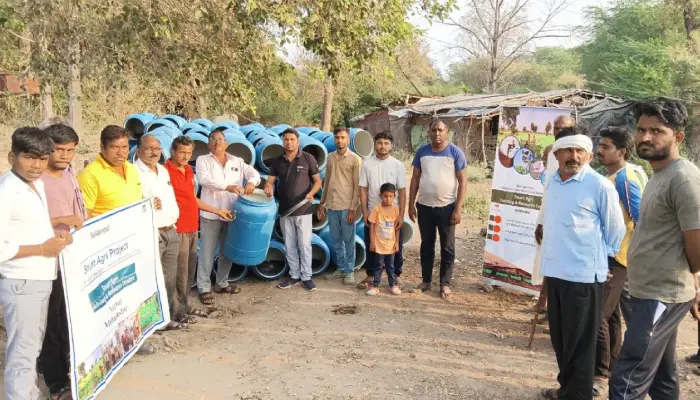
Empowering Farmers with Tools for Regenerative Agriculture
Solidaridad, in convergence with the Agricultural Technology Management Agency (ATMA), has taken a significant step to support farmers in the villages of Sawali Khurd and Wadhona Khurd in Nagpur district.
As part of this initiative, 50 project farmers were provided with two drums each to facilitate the preparation of jeevamrut and dashaparni ark. These natural solutions are integral components of sustainable and regenerative farming, promoting soil health and fertility, microbial activity, and pest management. This activity was supported through the Panjabrao Deshmukh Naisargik Sheti Mission programme.
These drums will help farmers prepare and store crucial inputs efficiently on their own farms. This initiative not only reduces cultivation costs, it also empowers farmers to adopt good agricultural practices that improve soil health, boost crop productivity, and promote long-term environmental sustainability.
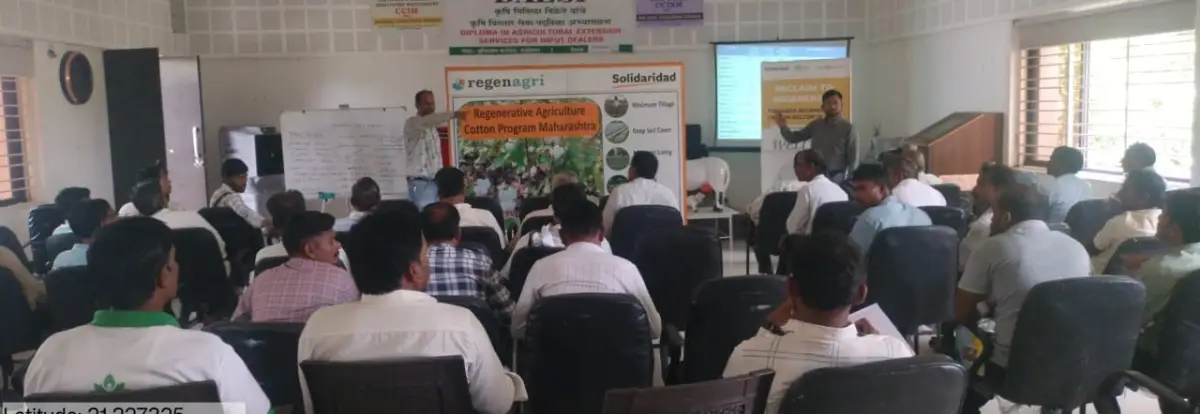
Strengthening FPO Leadership through Capacity Building
This month, Solidaridad conducted a training programme for the Boards of Directors of multiple FPOs at the State Training and Resource Centre, Nagpur. The objective was to strengthen their knowledge and leadership skills for the effective management and governance of their organizations.
The programme provided comprehensive guidance on critical aspects of FPO functioning, including establishment procedures, governance structures, marketing strategies, and business planning. These sessions were designed to equip board members with the tools to make informed decisions that support long-term organizational growth and sustainability. Through interactive discussions and practical exercises, participants gained valuable insights into their roles, responsibilities enabling them to enhance accountability and transparency within their organizations.
A key component of the training addressed the question of integrating regenerative and climate-smart agricultural practices into FPO planning and operations. Board members were guided on how adopting such practices benefits farmers by improving resilience to climate change, reducing input costs, and enhancing productivity while preserving natural resources. Practical sessions on input preparation techniques also demonstrated how locally available resources can be used effectively for sustainable crop management.
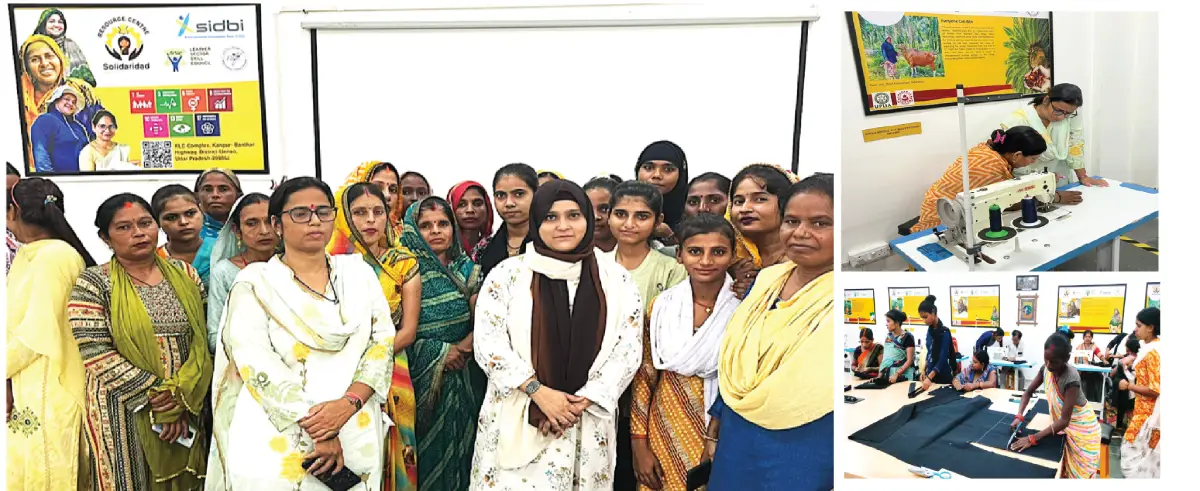
Assessment Activity for Certification of Women Artisans by LSSC
In September 2025, 20 women artisans from Ghonghi, Unnao, underwent an assessment activity, in alignment with Leather Sector Skill Council’s (LSSC) assessment guidelines.
The women artisans are trained at the Solidaridad Resource Centre, Kanpur–Unnao, on occupational health and safety, introduction to leather, as well as practical training on cutting, stitching, effective utilization of toolkits and exposure visits, both industrial and institutional. Participants also acquired skills in developing a variety of leather products with support from the National Institute of Fashion Technology (NIFT).
The evaluation was conducted by an accredited LSSC assessor, and all the participants successfully qualified, making it the first batch to achieve certification. The certification, coupled with the competencies gained during the training, is expected to significantly strengthen their professional profiles, enhance their earning potential, and contribute to greater recognition and respect within the leather industry.
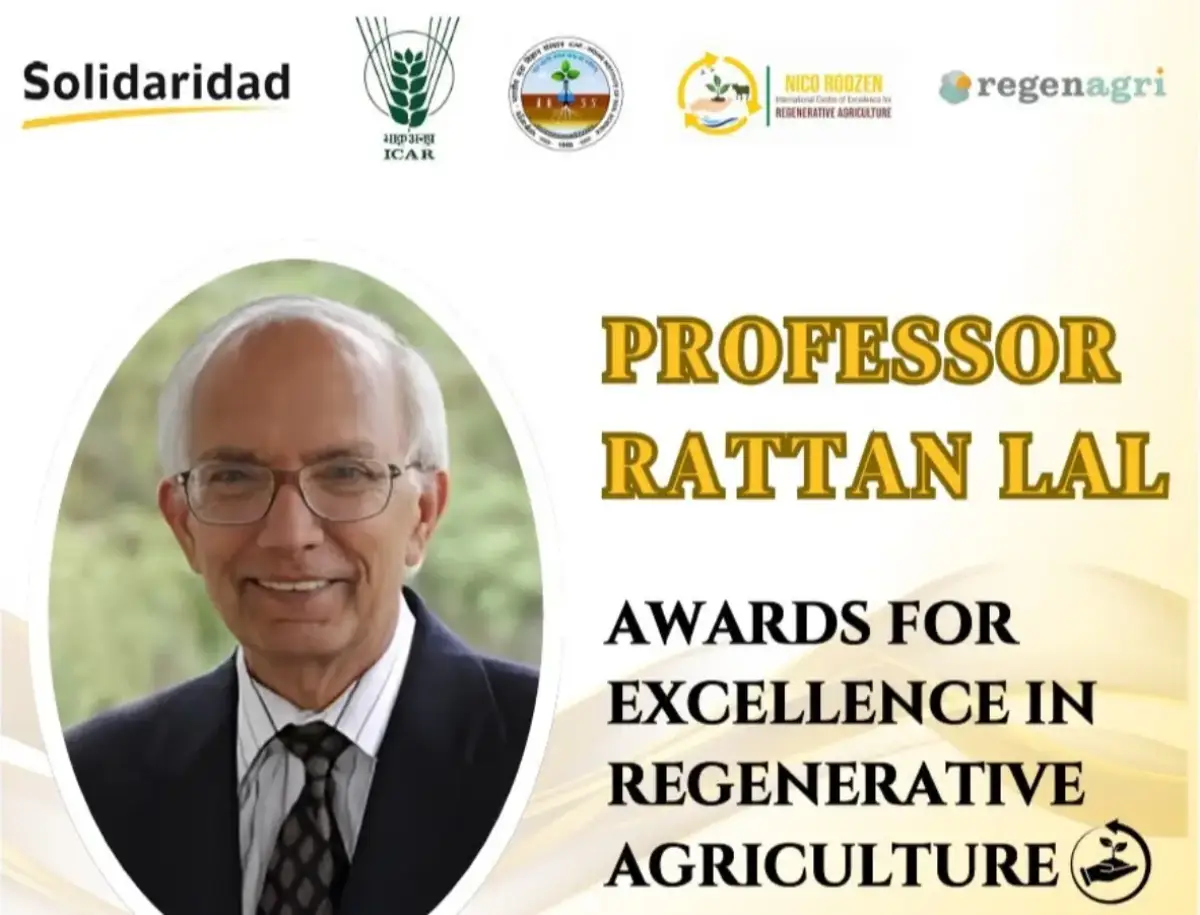
Inauguration Announcement of the Prof. Rattan Lal Awards
Solidaridad and ICAR–Indian Institute of Soil Science (IISS) announced the Professor Rattan Lal Awards for Excellence in Regenerative Agriculture, recognizing outstanding contributions of individuals, organizations, and institutions advancing sustainable farming.
Named after Professor Rattan Lal, a world-renowned soil scientist and World Food Prize (2020) laureate, the awards seek to inspire action for healthier soils, resilient farmers, and a sustainable and food-secure future.
Awards will be presented in the following 12 categories:
Interested candidates may visit profrattanlalawards.nicoregenagri.org to fill up the nomination form. Last Date for Nominations is 31st October 2025, 5:00 PM (IST).
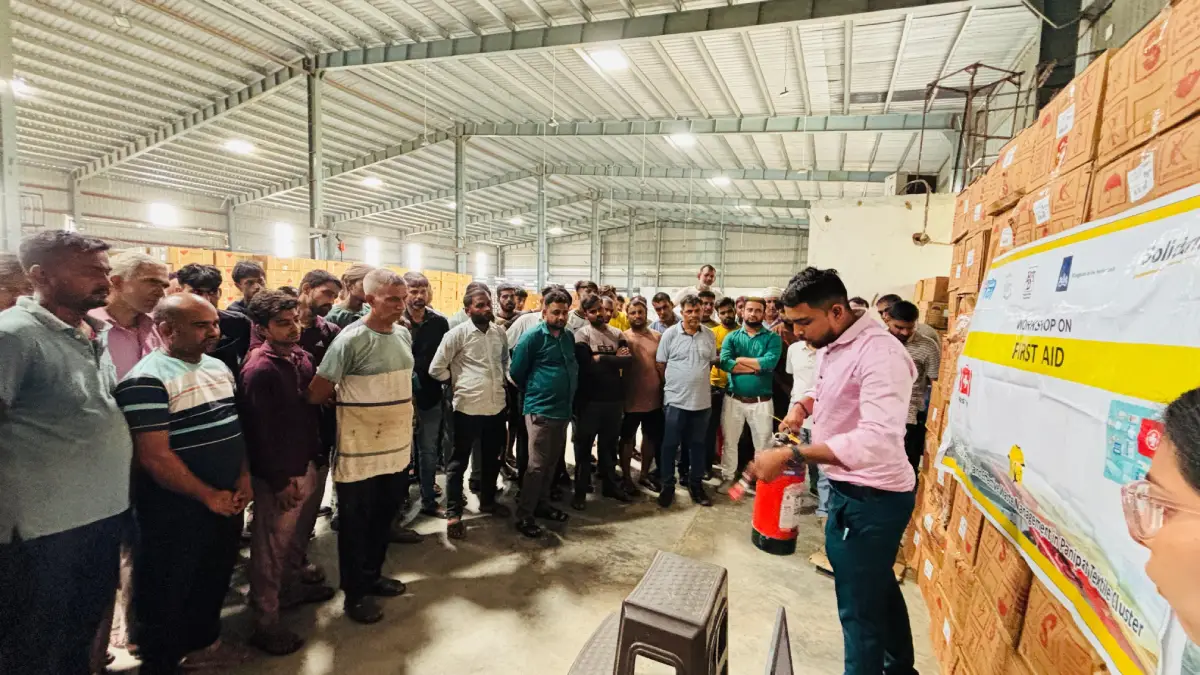
Embracing Sustainability and Transforming Safety Approaches at Mukesh Furnishing,
For Mukesh Furnishing, a textile unit based in the Panipat cluster, Haryana, the use of conventional dyeing practices and poor safety practices posed a significant challenge in their operations, leading to excessive water consumption, risky handling of chemicals and accidents, in turn leading to high attrition rates among workers.
Supported by Solidaridad, the unit deployed a number of technical solutions to address these issues. By adopting an auto-controller for optimizing water use in the dyeing process, the unit was successfully able to reduce water wastage by 15% without compromising the quality of dyeing. To address the issue of heat loss during dyeing, the unit has insulated/cladded the jet dyeing machine with a layer of mineral wool and an aluminium sheet. The insulation reduced the temperature of the external surface of the machine (from around 120°C, previously, to around 40°C, now) thereby preventing heat loss and minimizing chances of worker injuries. Mukesh Furnishing also employs a circular model, whereby they are reusing the treated wastewater from its effluent treatment plant. This practice avoided freshwater use, and the unit dyes around 2000 batches of textile fabrics a month using the recycled, treated water.
Improving workers’ safety is also a key concern for Mukesh Furnishing. It has already implemented an Integrated Chemical Management System to improve workers’ handling of chemicals and prevent mishaps. Comprehensive safety training sessions have also equipped workers with the necessary knowledge and skills to prevent accidents. As a result, the company has completely eliminated fire and occupational accidents. Workers have also reported improved safety conditions, with fewer incidents of chemical exposure and minor injuries, fostering a healthier and more secure working environment.
Rishabh Narang, Director, Mukesh Furnishing, states: “With the help of Solidaridad, we’ve managed to reduce our water and chemical usage while enhancing energy efficiency. Their support in improving occupational health and safety [standards] has also made a noticeable difference in the workplace.”